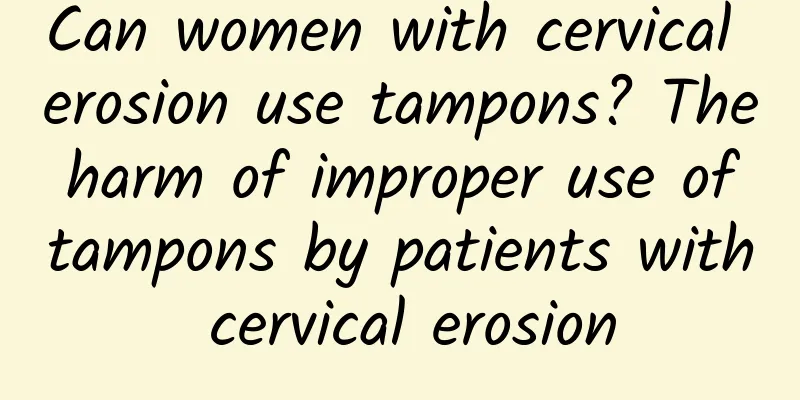Women need to be alert to four periods to prevent pelvic inflammatory disease

|
Pelvic inflammatory disease is a very common gynecological disease. Women are most likely to suffer from pelvic inflammatory disease during four periods, which needs to be taken seriously by female friends. Knowing the four periods of pelvic inflammatory disease that women need to be vigilant about is very helpful in preventing pelvic inflammatory disease . Let's take a look at the four periods. 1. Menstrual period Menstrual period refers to the menstrual cycle, which is generally about 28 days. To prevent pelvic inflammatory disease, women should pay attention to personal hygiene during menstruation and strictly refrain from sexual intercourse. During sexual intercourse during menstruation, the male genitals may bring bacteria into the vagina. Menstrual blood is a good breeding ground for bacteria and other microorganisms. Bacteria are very easy to breed and spread along many tiny wounds and ruptured small blood vessels in the endometrium, infecting the endometrium, and even involving the fallopian tubes and pelvic organs, causing pelvic inflammation. 2. Pregnancy . Pregnancy refers to the number of weeks of pregnancy. During pregnancy, you should strengthen your nutrition, improve your physical fitness, participate in more physical exercise, avoid taking antibiotics and other drugs without authorization, prevent anemia, treat the infection in time, and prevent the occurrence of pelvic inflammatory disease. 3. Delivery period The delivery period can be divided into the perinatal period and the perinatal period. The perinatal period refers to the important period before and after delivery, from the 28th week of pregnancy to one week after delivery. The perinatal period is a comprehensive name for the fetal period before delivery and the neonatal period after delivery of viviparous animals. During this period, women should adopt scientific methods to deliver babies, choose regular and large hospitals for delivery, and try to reduce dystocia and bleeding. 4. Postpartum period . The postpartum period is commonly known as confinement. It is an extremely important recovery stage for women who have just become mothers. During this period, if the body is not well recovered, it is very easy to cause various inflammations and leave many sequelae. During this period, women should pay attention to personal hygiene, change underwear frequently, keep a good mood, rest in bed properly, participate in appropriate sports activities, pay attention to the cleanliness of the genitals, and avoid lochia stagnation. The above is an introduction to the four high-risk periods of pelvic inflammatory disease that women need to be vigilant about. I hope everyone can understand these four high-risk periods, do a good job in preventing pelvic inflammatory disease, and effectively prevent the occurrence of pelvic inflammatory disease. For more information, please visit the pelvic inflammatory disease special topic at http://www..com.cn/fuke/pqy/ or consult an expert for free. The expert will then give a detailed answer based on the patient's specific situation. |
<<: Analysis of common symptoms of severe cervical erosion
>>: Analysis of the causes of infertility caused by pelvic inflammatory disease
Recommend
3-day detox diet to create a good figure before the New Year
The Lunar New Year is approaching, and many relat...
What could be the cause of abnormal vaginal discharge? What should I do?
What could be the cause of abnormal vaginal disch...
How can women prevent cervicitis? 12 ways to prevent cervicitis
How should women prevent cervical inflammation? T...
How to satisfy yourself during menstruation
During menstruation, satisfying yourself is not o...
Detailed explanation of the symptoms of acute pelvic inflammatory disease and chronic pelvic inflammatory disease
What are the symptoms of pelvic inflammatory dise...
Pay more attention to atrophic vulvar leukoplakia
What is atrophic vulvar leukoplakia? Women must w...
Several effective dietary treatments for dysmenorrhea
Among the various methods of treating dysmenorrhe...
What tests should women with cervical erosion do? Women must do 4 tests to diagnose cervical erosion
Nowadays, many women are very worried that they w...
What are the best ways to prevent endometrial tuberculosis?
There are many types of tuberculosis among gyneco...
Is abortion really harmless to women's bodies?
Although abortion is a simple operation in real l...
Etiological treatment of secondary dysmenorrhea is the key
What treatment method should women with secondary...
Symptoms of uterine adnexitis
Adnexitis is a type of gynecology, and uterine ad...
What does amenorrhea mean?
Amenorrhea, as the name suggests, means that a wo...
A young woman weighed over 100 pounds and suffered from severe sleep apnea! Complete weight loss surgery + sleep surgery at one time
Patients with sleep apnea often have obesity prob...
National Health Bureau: More than 40% of adults gained an average of 1.7 kg after the Chinese New Year
The nine-day Lunar New Year holiday has ended, an...









